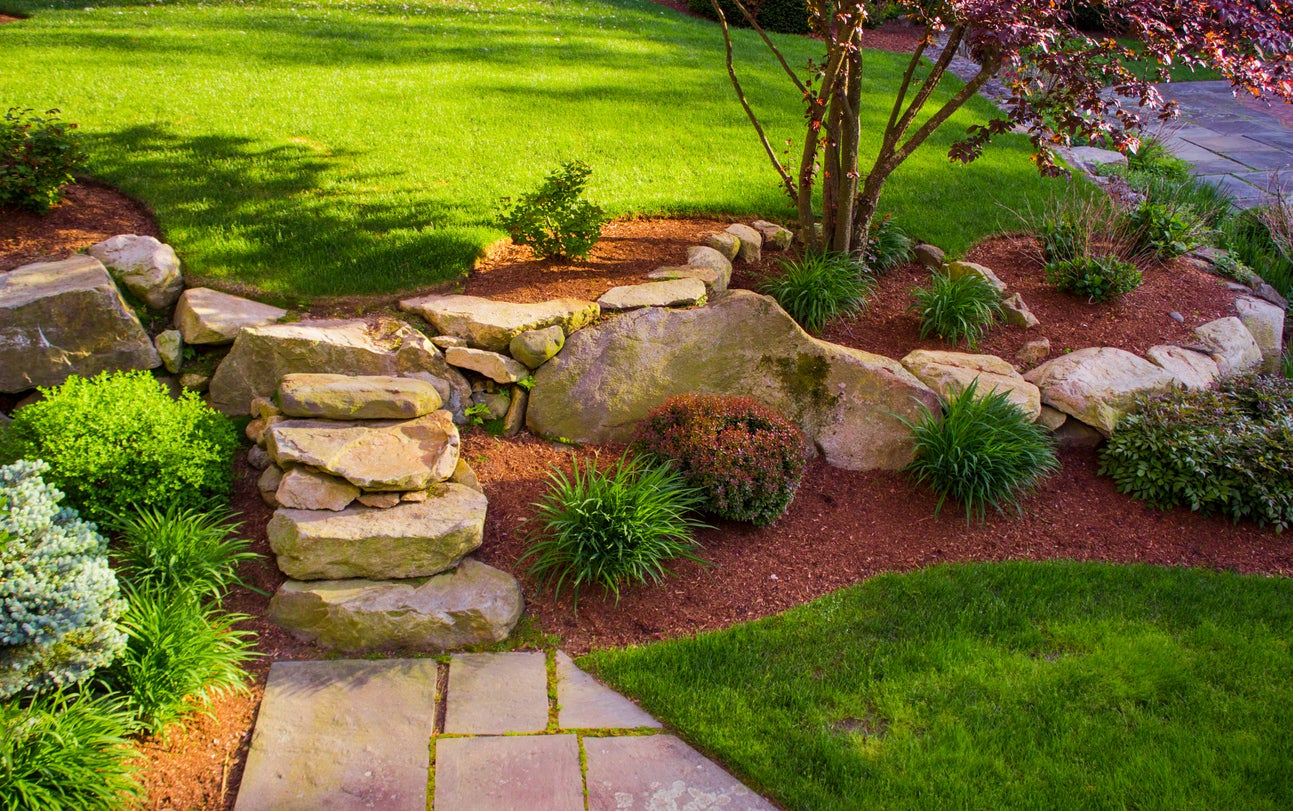Rock Landscape Design – How To Use Rocks In The Garden


Having a landscape with stones adds texture and color to your garden. Once your rock landscape design is in place, it is basically maintenance-free. Using rocks for gardening works well anywhere, but especially in difficult areas or those plagued by drought. Here are a few easy ways of creating a landscape with stones.
How to Use Rocks in the Garden
Landscaping ideas using rocks abound, as there are different types of stone you can use and just as many different ways to use them.
Use river rocks to line brick or flagstone paths. Smaller, round rocks contrast beautifully and soften the edges of square or rectangular paving stones.
Create retaining walls with large, flat rocks. Retaining walls work especially well on sloped areas, keeping the soil in place and providing space for evergreens or other plants. Rock gardens are often planted on top of retaining walls, on slopes, or in other difficult areas. Arrange rocks amidst low-maintenance plants like ice plants, yellow alyssum, hens and chicks, candytuft, or ajuga.
Use large rocks to hide garbage cans, compost bins, or other unsightly areas. Mix a few colorful flowers among the rocks; an ugly area then becomes a warm and inviting rock landscape design. Arrange rocks under gutter downspouts in a way that directs water naturally away from your house, much like a miniature creek bed.
Rock Landscape Designs Using Boulders
Consider the cost of placing boulders when using rocks for gardens, and don’t underestimate their weight. Landscapers who specialize in building ponds or large water features may be a good source of information. Purchase rocks from local suppliers, which will look more natural in your landscape. The rocks will be less expensive because they don’t have to be transported as far. A local company should have the needed equipment and may even help set large boulders in place.
You may have noticed that boulders usually exist in groups, often carried there by fast-moving floods or glacial ice. A single boulder rarely looks natural in a landscape with stones. If you already have a lot of rock around your home, don’t bring in boulders in contrasting colors. The difference will be glaringly obvious. Instead, find boulders that look natural and blend into your existing environment.
Sign up for the Gardening Know How newsletter today and receive a free copy of our e-book "How to Grow Delicious Tomatoes".
Keep in mind that boulders don’t sit on top of the ground; they are partly buried. Take time to study the boulder and place it with the most interesting aspect facing up. In nature, plants tend to grow around boulders where they are protected from cold winds. Shrubs, native grasses, or long-lived perennials will look perfectly natural tucked around your boulders.

A Credentialed Garden Writer, Mary H. Dyer was with Gardening Know How in the very beginning, publishing articles as early as 2007.